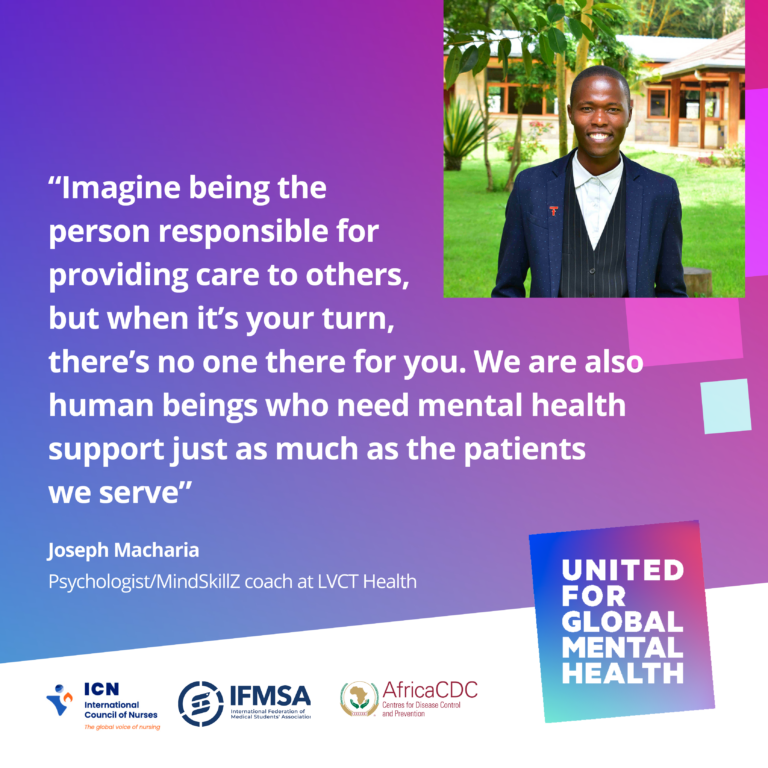WorkForce
Pushing For The Mental Health Workforce The World Needs
The challenge
The world is in urgent need of a well-trained and well-resourced mental health workforce; thus, we are advocating to address the global shortage of mental health professionals, particularly in low- and middle-income countries (LMICs). In many LMICs, the demand for mental health care exceeds the supply of mental health care professionals, widening the mental health treatment gap.
We are working alongside national and regional partners to coordinate efforts to develop a health workforce capable of delivering the mental health care people need, where they need it and when they need it most. To address this gap, we are calling for:
- Training of non-mental health specialists (e.g., primary care providers, maternal care providers, and community health workers) to provide mental health promotion, prevention, care and treatment to expand and strengthen the workforce able to deliver mental health services.
- Governments and their implementing partners to exercise their duty of care to their staff by protecting the mental health of the health workforce
- Championing and celebrating the tireless contributions, commitment and care of the mental health workforce to create an appreciated and empowered mental health workforce.
- Governments and decision-makers to create positive working conditions that encourage health care workers to join the mental health workforce and remain part of it, especially in rural, remote and less developed areas.
Read more about our efforts in our 2024 World Mental Health Day Campaign aimed at prioritising the needs of the Mental Health of the Health Workforce.

What’s Next
UnitedGMH has launched a new project on perinatal mental health. Approximately 1 in 5 women will experience a mental health condition during pregnancy or in the year after the birth. Young mothers are at higher risk of developing mental illness especially postpartum depression during the perinatal period compared to their adult counterparts. With our national partners we are advocating for governments to strengthen the perinatal mental health skills and knowledge in the existing health workforce, to transform care for young mothers and their newborns.
We will host and contribute to a series of webinars and develop a policy brief to raise awareness on the importance of perinatal mental health and influence national policy to encourage the integration of perinatal mental health into primary care including maternal and child health care and reproductive health care services.
We will facilitate peer led workshops with civil society, national and global organisations to strengthen the capacity of national partners to advocate for improved access to and availability of health professionals and services that can address perinatal mental health, especially for young mothers.
Resources
- Mental health ATLAS 2020 – WHO (2021)
- Global strategy on human resources for health: Workforce 2030 –WHO (2020)
- Guide on integration of perinatal mental health in maternal and child health services– WHO (2022)
- The maternal MH experience of young mothers (2023) – Maternal Mental Health Alliance & Children and Young Peoples Mental Health Coalition
- A Right Not A Privilege: Prioritising Maternal Mental Health (2025)